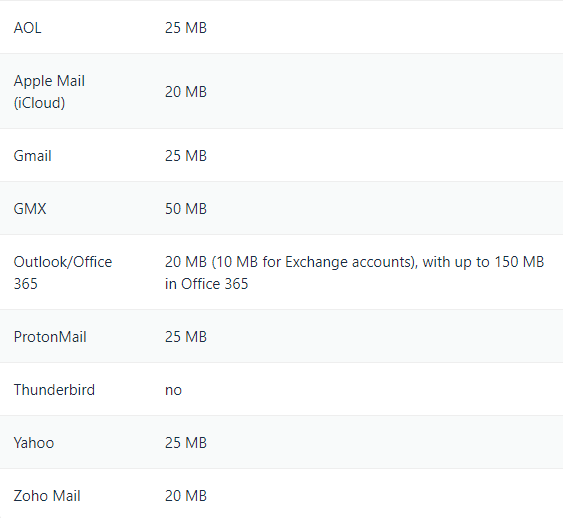Our mail size limits
Email limits
Importance of limits
Email size limits are used for 3 main reasons:
Performance. Firstly, email systems are not designed for large attachments or to transfer large files. SMTP enables email. However, SMTP is designed for short text messages. Add-ons have enabled support for attachments and other extended features, but SMTP itself is not suited for transporting large files (Hence the existence of FTP). In addition, mail transfer agents often scan incoming data for viruses and other potential risks, which also takes resources and affects system performance.
Security. Email services use a limited number of ports to retrieve data. Then, by limiting the size of emails & any attachments, we reduce the risk of DoS-style attacks against your service.
Compatibility. Email limits are commonplace, almost every email client or provider has an imposed limit, some of which are visible below. By conforming to the lowest email limit, we allow for maximum compatibility across multiple services.
iCloud Mail: The size of incoming and outgoing messages (20MB, up to 5GB with Mail Drop turned on)
Gmail: You can send up to 25 MB in attachments. If you have more than one attachment, they can’t add up to more than 25 MB. If your file is greater than 25 MB, Gmail automatically adds a Google Drive link to the email instead of including it as an attachment. Learn more about Google Drive attachment-sharing settings.
Outlook.com: the combined file size limit is 20 megabytes (MB) and for Exchange accounts (business email), the default combined file size limit is 10 MB.

